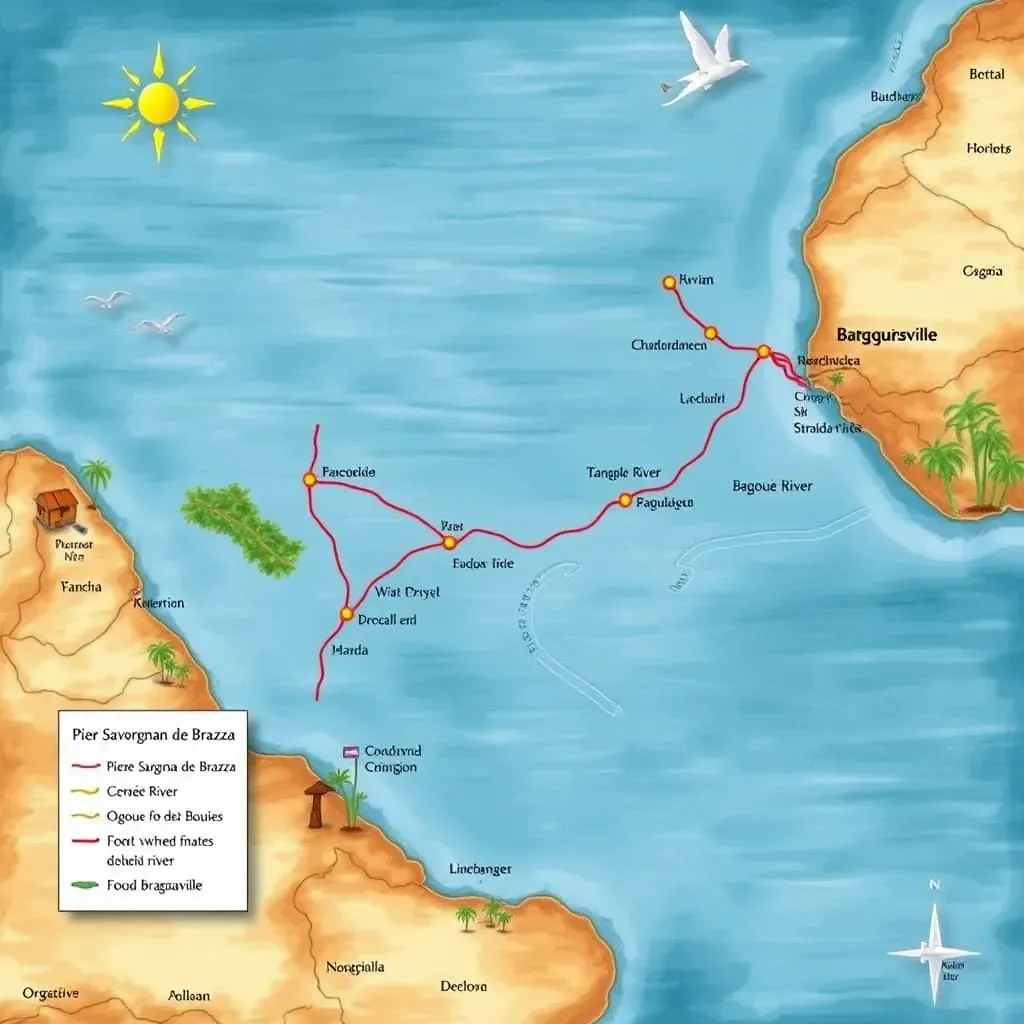Pierre Paul François Camille Savorgnan de Brazza, commonly known as Pierre de Brazza, was an Italian-French explorer born on January 26, 1852, in Rome. His explorations in Central Africa, particularly in the Ogooué region, laid the groundwork for what would become known as French Equatorial Africa. Known for his amiable demeanor and a peaceful approach to exploration, Brazza’s legacy remains a complex mix of admiration and critique.
Early Life and Education
Pietro Savorgnan di Brazzà was the seventh child in a noble family with roots in Friuli and a strong connection to France. His father, Ascanio, was a noted artist while his mother, Giacinta, hailed from a distinguished Roman family. From early on, Pietro harbored dreams of adventure, often inspired by novels about exploration. In 1870, he entered the French naval academy, where he began a journey that would lead him to the heart of Africa.
Initial Encounters with Africa
Brazza’s first substantial interaction with the African continent occurred in 1872 during an anti-slavery mission off the coast of Gabon. This experience ignited his desire to delve deeper into the mysteries of the African interior. By 1874, he had secured governmental support for an expedition to explore the Ogooué River, aiming to chart new territories and establish trade relations.
The First Expedition
Between 1875 and 1878, with a small team equipped with minimal armaments and a variety of goods for barter, Brazza embarked on his first significant expedition into Central Africa. He traveled through the rugged terrains, discovering various species of flora and fauna previously unknown to Europeans, and establishing friendly relations with local tribes. His methods, which emphasized diplomacy and respect, allowed him to navigate the complex social landscapes of the region.
The Treaty with King Makoko
During his second mission from 1879 to 1882, Brazza reached the Congo River, where he met King Makoko of the Bateké. Recognizing the potential for trade and protection from rival tribes, Makoko agreed to place his territory under French protection. This agreement paved the way for the establishment of a French settlement at Malebo Pool, which would later be named Brazzaville.
Governorship and Reforms
In 1886, Brazza was appointed governor-general of the French Congo. He implemented several progressive reforms, including the establishment of schools and clinics, and mandated fair wages for African workers employed by European traders. His administration was characterized by a commitment to improving the living conditions of the local populace, contrasting sharply with the brutal practices observed across the river in the Belgian Congo.
Conflict with Colonial Interests
Despite his successes, Brazza’s approach often put him at odds with powerful commercial interests. He opposed the extensive land grants to private companies that led to exploitation and abuse of native workers. In 1898, he was dismissed from his position under dubious circumstances, marking a significant turn in his career.
Final Years and Investigation
Brazza’s last mission to Africa occurred in 1905 when he was called to investigate reports of exploitation and brutality under the new colonial regime. Accompanied by his wife, Thérèse, he faced hostility upon his return. The findings of his investigation revealed alarming conditions, including forced labor and severe mistreatment of indigenous populations.
Death and Legacy
Pierre Savorgnan de Brazza succumbed to illness on September 14, 1905, in Dakar, shortly before his return to France. Following his death, his contributions to the exploration and administration of Central Africa were overshadowed by controversies surrounding colonial practices. His remains were eventually repatriated, and he received a state funeral in Paris.
The Mausoleum and Controversy
In 2006, Brazza’s remains were exhumed and interred in a newly built mausoleum in Brazzaville, a testament to his complex legacy. While some view him as a humanitarian who sought to improve the conditions of African peoples, others criticize him for his role in colonial expansion and exploitation. The juxtaposition of these perspectives continues to ignite debate in contemporary discussions about colonial history and its impacts.
Commemoration and Recognition
Brazza’s name lives on in the city of Brazzaville, one of the few African cities to retain its colonial name as a sign of respect for the explorer. His story, once celebrated, now serves as a reminder of the intricate and often painful history of colonialism in Africa.
For more insights into the cultural heritage and attractions of the region, check out Burano: L’Isola dei Colori e dei Merletti.
